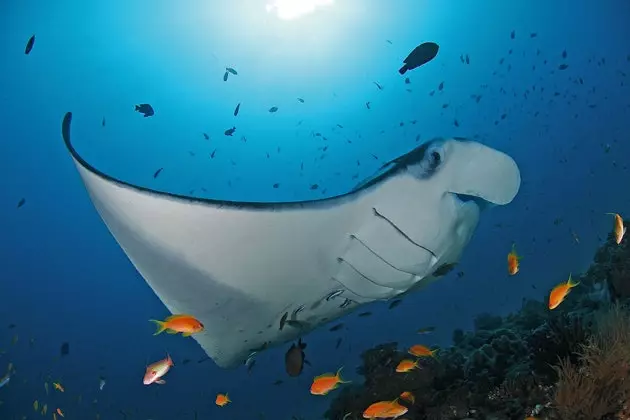
What is happening to our oceans
Half of the world's population lives less than 100 kilometers from the sea. and three out of four large cities are on the coast. In recent decades, the resources of the oceans have been overexploited without limit, endangering the balance of the entire planet. The water temperature has risen more than expected , also in the depths, the fishing begins to scarce, there are islands of garbage and microplastics floating dragged by the currents.
Nevertheless, only 2.8% of the oceans are protected . "Did you know that 64% of the extension of the oceans is not under the supervision of any country? This, which at first might seem something positive, has ended up becoming a danger, because now there is no area to which, with new technologies and new ships, you cannot reach and literally deplete areas both with fishing and exploiting natural resources," he tells Condé Nast Traveler Jose Maria Figueres , considered the father of sustainable and modern Costa Rica, a country of which he was president between 1994 and 1998.
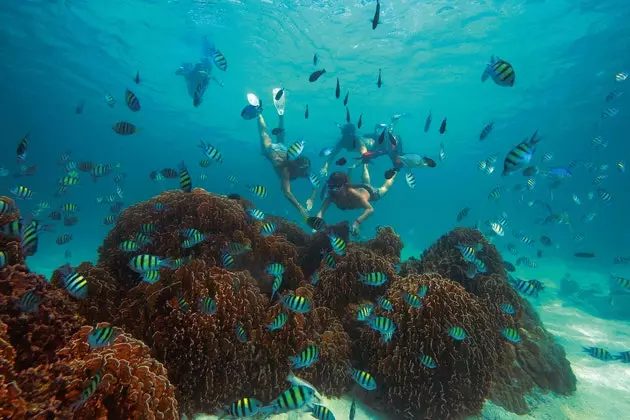
Did you know that only 2.8% of the oceans are protected?
Since he left the presidency, Figueres has become a respected voice in the international arena From his position as Executive Director of the Davos Forum , to which he gave a marked environmentalist trait. For years he has chaired the Carbon War Room , an institution that seeks solutions to climate change, and is co-chair of the Global Ocean Commission , the international organization that created Sir Richard Branson two years ago to develop economic, political and technical proposals that help reverse the degradation of the oceans and restore them to health. “Every second we breathe we owe 50% to the oxygen produced by the oceans. The oceans regulate the global climate but it seems that we are not fully aware of it”, he indicates.
“The state of our seas is alarming. It is seen with the naked eye. With climate change, the waters have become more acidic due to the absorption of carbon, and the invasion of plastics is unsustainable . In fact, if we continue to produce oil derivatives at the same rate, in ten years, in 2025, the seas will have one ton of plastic for every three of fish ”, concludes Figueres, who, in the commission, is accompanied by world leaders, former politicians, investors and senior executives of companies with a high environmental commitment. Together they are raising awareness in governments and institutions, convincing them that they can also be part of the solution.
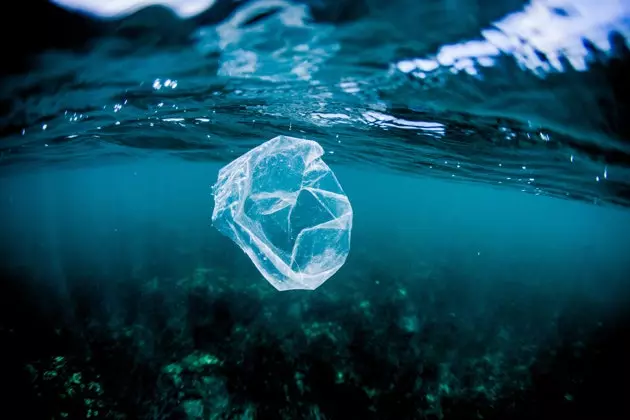
There are islands of garbage and microplastics floating in the oceans
According to the Global Ocean Commission, 80% of the pollution suffered by the seas is produced by activities on land . It is estimated that currently eight million tons of plastic waste are dumped every year , a large part of which ends up accumulated by ocean currents in five large marine basins. The great North Pacific garbage patches formed between California, Hawaii and Japan , are the best known, but there are many others.
Precisely in the northeastern Pacific, between the archipelagos and atolls of Hawaii, Samoa and the Marianas, President Obama established, in September 2014, the largest marine reserve in the world, the Pacific Remote Islands Marine National Monument , a network of sanctuaries that has expanded the existing conservation area: from 225,329 km2 to 1,270,000 km2. Half a year later, last March, the British Prime Minister, David Cameron, announced the creation of a huge marine reserve of 830,000 km2 (three times the size of the United Kingdom) in the even more remote Pitcairn Islands –its around 60 inhabitants are, almost all, descendants of the mutineers of the Bounty, in 1790–, a British overseas territory in the South Pacific. Hereinafter, only local fishermen will be able to fish around its coasts using only sustainable traditional methods.
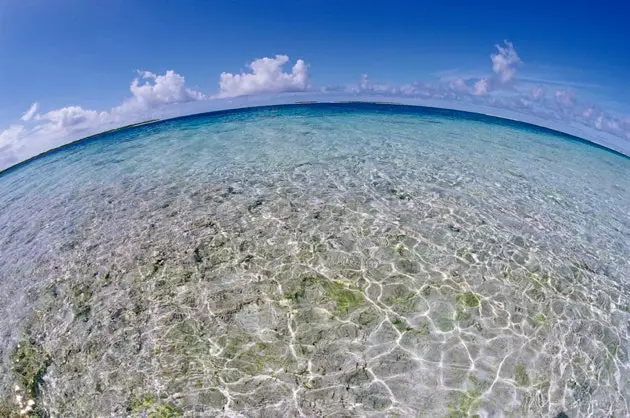
The waters of the Pitcairn Islands
The extraordinary ecosystem of the Pitcairns includes the deepest and best developed coral reef , intact sea ridges, one of the two remaining coral atolls in the world, the plant that lives at the deepest depths (382 meters) and 1,249 known species of flora and fauna, in addition to many others that are still waiting to be discovered by the science. ** We know such wonders from the data collected by the Pristine Seas expedition ** (Crystalline Seas) of the National Geographic Society , carried out in 2012 and whose work has been essential for the conservation of the area.
We spoke with Paul Rose , his expedition leader, a regular face in the BBC documentaries and avid explorer. “I left school at the age of 15 and inspired by the mythical Commander Cousteau, I wanted to dedicate myself to discovering the planet and its underwater world. That's why I became a professional diver ”, tells the adventurer, who spends almost 300 days a year away from home, exploring, to Condé Nast Traveler. He now he works hand in hand with Davidoff , a firm that has been sponsoring the missions of the Pristine Seas project for four years now through its most aquatic aroma, Cool Water. "We have a fragrance inspired precisely by the oceans, so there is a commitment to seriously protect them: by selling each bottle of this fragrance we protect 10,000 m2 of marine surfaces," he says. federico rossi , one of the highest managers of the corporation.
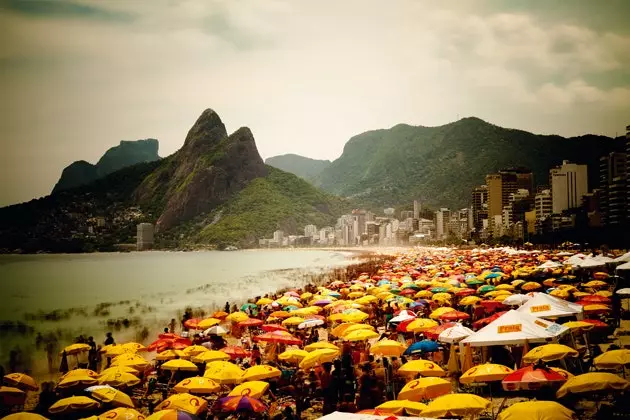
The waters are getting more acidic
Paul Rose couldn't be happier. “We are in very advanced phases with the governments of Mozambique, Palau and Rapa , which have followed the example of Gabon. Your president, Ali Bongo Ondimba , he promised us to create a marine sanctuary of 46,000 km2, which represents 23% of the country's territorial waters, and he has done it! ”, he congratulates with a big smile. “ Just as we enjoy the oceans, we have to defend and protect them: intensely ”, concludes Rose on the way to a new mission.
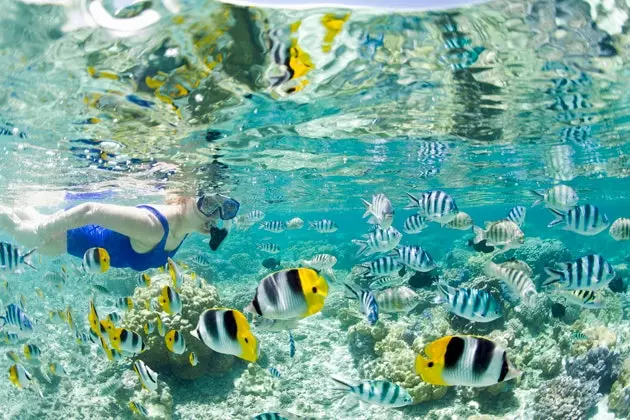
A little self-criticism: to enjoy them, you have to take care of them
* This report is published in the October 88 issue of the Condé Nast Traveler magazine and is available in its digital version to enjoy on your preferred device.
Follow @Sr\_JOF
*** You may also be interested in...**
- Documentaries that will encourage you to pack your suitcase
- "The earth is a living pharmacy that we must preserve"
- How to order emotions in the middle of the Pacific Ocean
- Exotic islands where you won't mind becoming a castaway
- Underwater paradises where you can be happy
